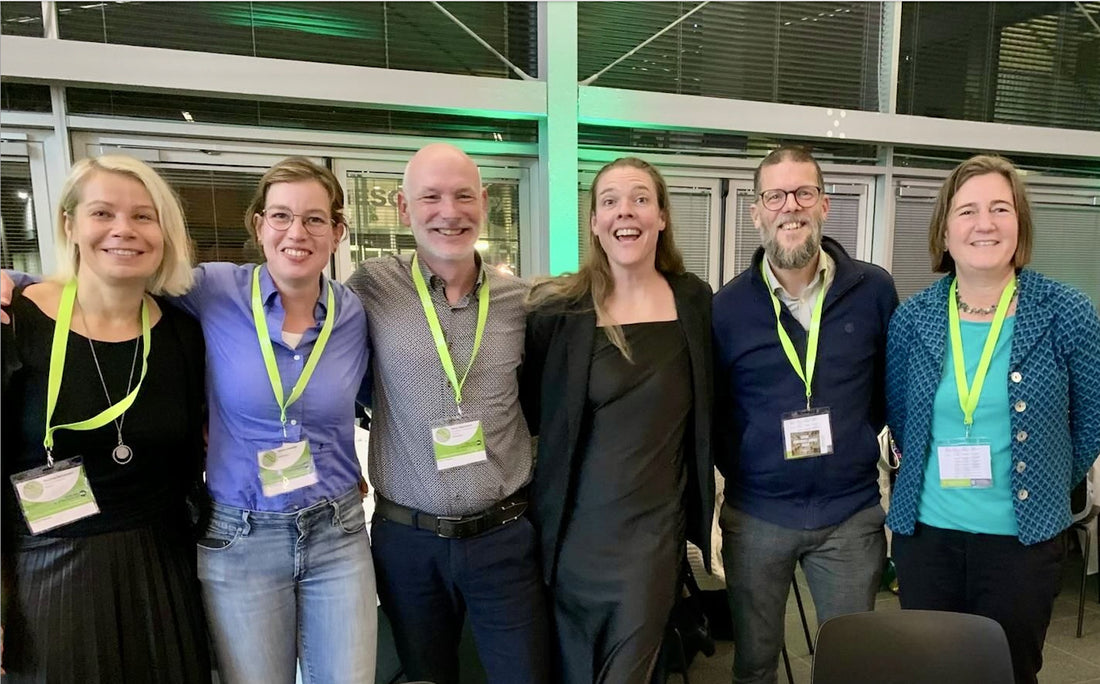
Celebrating ISCAR 2024 with Ed Psych Bite
The International Society for Cultural-historical Activity Research this summer held its triennial congress ISCAR 2024: Inclusiveness as a Future Challenge in Rotterdam, the Netherlands, from 26-30 August 2024. A doctoral symposium was held prior to the congress in the nearby city of Amsterdam. ISCAR thanks the local organising committee and everyone who made the event such a success!

Those who could not make the event (or those who were there, and would like to remind themselves of some of the highlights) will be interested to see the coverage of the congress on the Ed Psych Bite podcast hosted by Gillian Horribine of Dundee University.
The podcast, whose episodes are available on YouTube and Spotify, features a 75 minute video compilation of interviews with attendees of the congress. It also features recordings of two of the keynote presentations: by Professor Anna Stetsenko (City University of New York, USA) and Professor Annalisa Sannino (Tampere University, Finland).
Ed Psych Bite Episode 7: Insights from the conference. YouTube video | Spotify audio
Gillian Horribine writes:
This Ed Psych Bite episode ‘Insights from the International Society of Cultural-historical Activity Research (ISCAR) conference’, is a collection of brief conversations with ISCAR delegates captured between workshops, keynotes or before the day’s events. I am deeply grateful to them all for the enjoyable and inspiring discussions we had as they shared their ‘in-the-moment’ reflections at various points in the conference.
The episode begins with Sara Viklund, a PhD student working on researcher-municipality practice-based research collaborations, who shares her hopes for the conference. Alicia Elias Caballero and Myci Atkinson then discuss their learning, reflecting on concepts such as objectivity as obedience, collaboration versus interaction, and the implications of differences between humans and AI. PhD student Sherene Farag explores her study on discriminatory and resistance discourses within social movements on Dutch national identity, touching on the personal impact of such work. From the second day, Sanna Juvonen and Professor Hanna Toiviainen describe their research examining knowledge creation and practice development through three studies with healthcare professionals. Lwanda Maqwelane and Erin MacDonald offer their critical view on the value of CHAT, key implementation principles, and question whether academics should do more to address global crisis. The final delegate interview involves Dr Viviana Hojman and Marijn Neuman-Sjonger who discuss their distinct research projects and find common ground in their realisation of implications for agency in both academic and youth work settings. My own reflections and insights are woven throughout and summarised at the end.
For me, this digital record has become an invaluable source of multi-voiced, thought-provoking reflection and inspiration. I've realised that my engagement with these conversations—both during and after ISCAR—has provided something akin to mirror data, continually supporting my own learning and understanding. I hope the episode might serve a similar role for others, perhaps as a resource to be held and revisited as our thinking and understandings develop.
I extend my heartfelt thanks again to all the delegates involved, as well as to Professors Anna Stetsenko and Annalisa Sannino for allowing their keynotes to be recorded and shared. Special gratitude goes to Marit Wormgoor and colleagues for their practical support and friendly encouragement.
Professor Anna Stetsenko, opening keynote. YouTube video | Spotify audio
Professor Annalisa Sannino, closing keynote. YouTube video | Spotify audio
To learn more about Gillian's work and research, or to explore opportunities for participation in the podcast, please visit www.gillianorb.com. You can find Gillian's academic profile at https://www.dundee.ac.uk/people/gillian-horribine.



